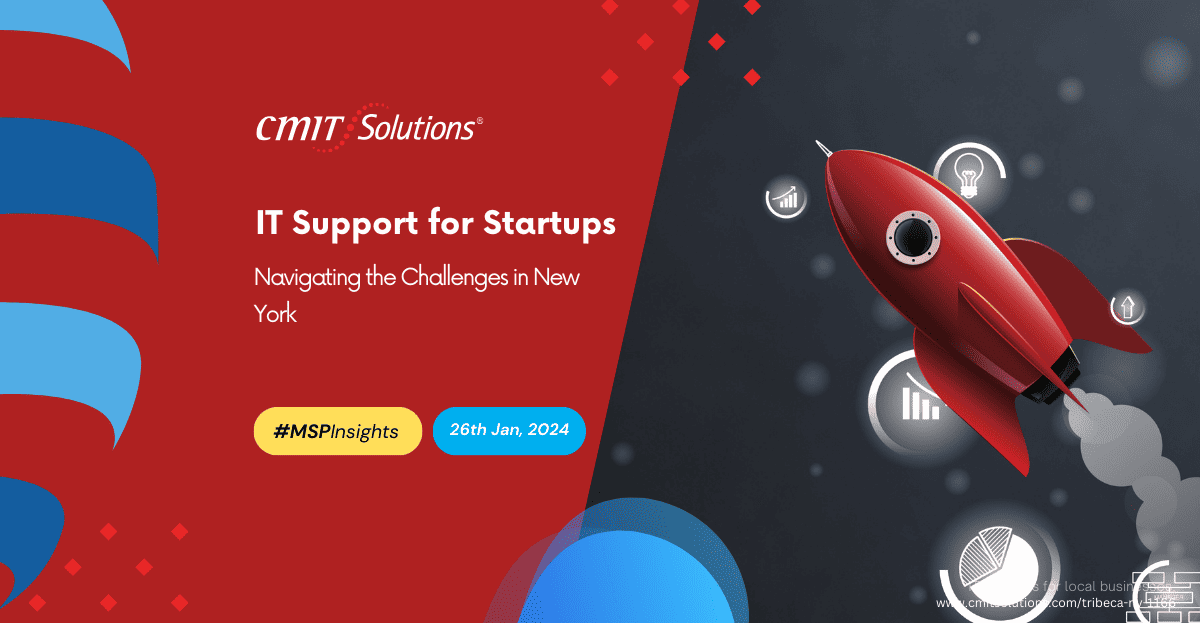In this competitive and flourishing business field of NYC, startups face peculiar challenges that call for novel approaches. In the plethora of factors that contributed to their success, a solid IT support system stands out as an essential feature. In this paper, the peculiar problems faced by startups in New York City are presented and discussed highlighting the important role of IT support in overcoming these challenges. We shall discuss the key elements of IT support specific to startups addressing issues relating to hardware, software, cybersecurity and scalable solutions. Additionally, pragmatic approaches to creating a sound IT support foundation for startups on the shoestring budget will be offered with emphasis made upon typical pain points and possible solutions. Such current instances and case studies will be introduced too to demonstrate how effective IT support strategies can work for startups from New York.
Unique Challenges for Startups in New York:
New York City is a highly competitive business environment, which among other challenges faces startups with high operational costs and fast technological changes. Such challenges require a positive response from the IT side of things, as technology is instrumental in helping startups succeed. The challenges include:
1. Cost Constraints:
Often, startups have limited budgets and they use their resources carefully to feed on growth. In New York, characterised by high living costs and business expenditure across the board managing IT costs becomes a precarious act.
2. Fierce Competition:
In a competitive business environment, New York requires the startups to remain on top of technology. Organisations with advanced IT capabilities are in a better position to innovate, differentiate and outperform their rivals.
3. Cybersecurity Threats:
New York is a major target for cyber threats because of its economic importance. All start-ups, irrespective of their size are indeed at risk from cyberattacks. Sensitive data must be protected, and customer trust needs to be preserved.
4. Scalability Demands:
New York startups face fast growth. Scalability is necessary to ensure that IT solutions are adaptable and can support growth efficiently, requiring a technology infrastructure capable of supporting increased operations as needed.
Essential Components of IT Support for Startups:
1. Hardware Infrastructure:
Startups should buy dependable yet affordable hardware. Being cloud-based, solutions such as Infrastructure as a Service (IaaS) make it easy for the startups to scale resources on demand and reduce their initial investment in hardware. Laptops, servers and networking gear should be selected according to performance needs as well scalability.
2. Software Solutions:
What is essential in this regard are startup-specific software. Efficiency is improved through project management tools, collaboration platforms and customer relationship management (CRM) systems. Alternatively, open-source software provides financial savings through flexibility and individualization.
3. Cybersecurity Measures:
First and foremost, startups in New York must preserve confidential information. The adoption of strong security measures comprising firewalls, anti-virus software and encryption protocols protect against cyber threat. Regular employee cybersecurity training is perhaps just as important.
4. Scalable IT Infrastructure:
When startups get larger, their IT infrastructure has to change as well. As cloud services, scalable solutions help startups grow naturally. Cloud computing delivers not only flexibility but relieves the burden of server maintenance and enables virtual working across different geographic locations.
Building a Robust IT Support Infrastructure on a Startup Budget:
1. Prioritise Essential Needs:
Determine the most important IT requirements for your startup; then, arrange them according to their urgency of need. This ensures that resources are directed at the most pressing issues, thus eliminating wasteful spending on irrelevant facets.
2. Explore Affordable Solutions:
Look into cheaper options without sacrificing quality. Upfront costs can be greatly reduced by use of open-source software, free trials and discounted packages. Working with IT service providers that focus on startup assistance can also provide cost-saving alternatives.
3. Embrace Outsourcing:
For the start-ups it would be a strategic decision to outsource some of the IT functions. With managed IT services, startups are given access to a team of experts rather than having to hire an in-house staff. This approach ensures that IT support is holistic and cost effective.
4. Plan for Scalability:
Select IT solutions that can scale with your startup. However, cloud-based services enable startups to scale resources when necessary while avoiding unnecessary and expensive upgrades. An appropriate IT strategy should take into account short-term needs as well as possible scalability in the future.
Real-World Examples and Case Studies:
1. Digital Ocean:
Using Digital Ocean, a cloud infrastructure provider has been helpful in facilitating startups based in New York. Indeed, its cost-effective scalable cloud services have helped startups deploy their applications in a jiffy with top performance at an affordable price.
2. Managed by Q (Now Eden):
As a result, outsourced IT support by Managed Q – an American startup that provides workplace management solutions was able to effectively manage the given technical issues. This enabled the firm to concentrate its efforts on core business activities without compromising performance or cost effectiveness of the IT industry.
3. Casper:
In its IT support, Casper was a New York-based startup in the mattress industry which employed cloud software. This strategy allowed teams to work smoothly and resulted in rapid scaling as the company grew its share of the market.
Conclusion:
In a fast-paced business environment of New York, startups face different challenges that require tact in terms of IT support. However, through focusing on the startup-specific challenges – cost limitations, competition, cyber threats and scalability concerns– an efficient IT support infrastructure becomes a conductor of success. In addition, it is important to implement cost-effective hardware and software solutions, focus on cybersecurity measures, and consider scalability when building a comprehensive IT support system in the budget of startup companies.
The practical application of these problems shows that startups are capable of overcoming them using innovative IT strategies. Through a critical study of the peer learning from others nearby, startup entrepreneurs can employ practical insights to fine-tune their IT support in New York’s growth and efficiency dynamic entrepreneurial ecosystem. Meanwhile with technology still developing as it does, IT support becomes more and more important for startups to develop in the most competitive market across the globe.








